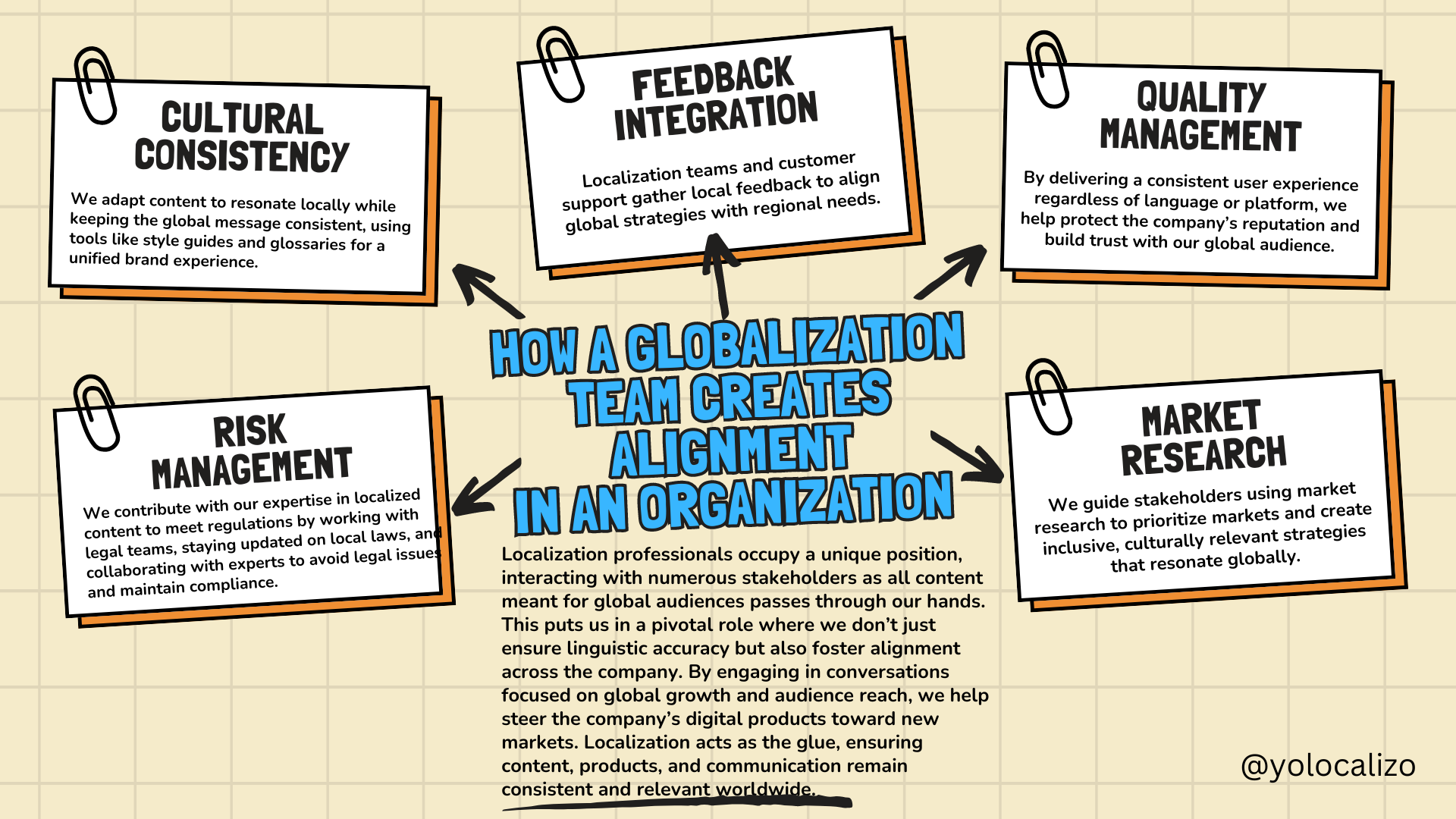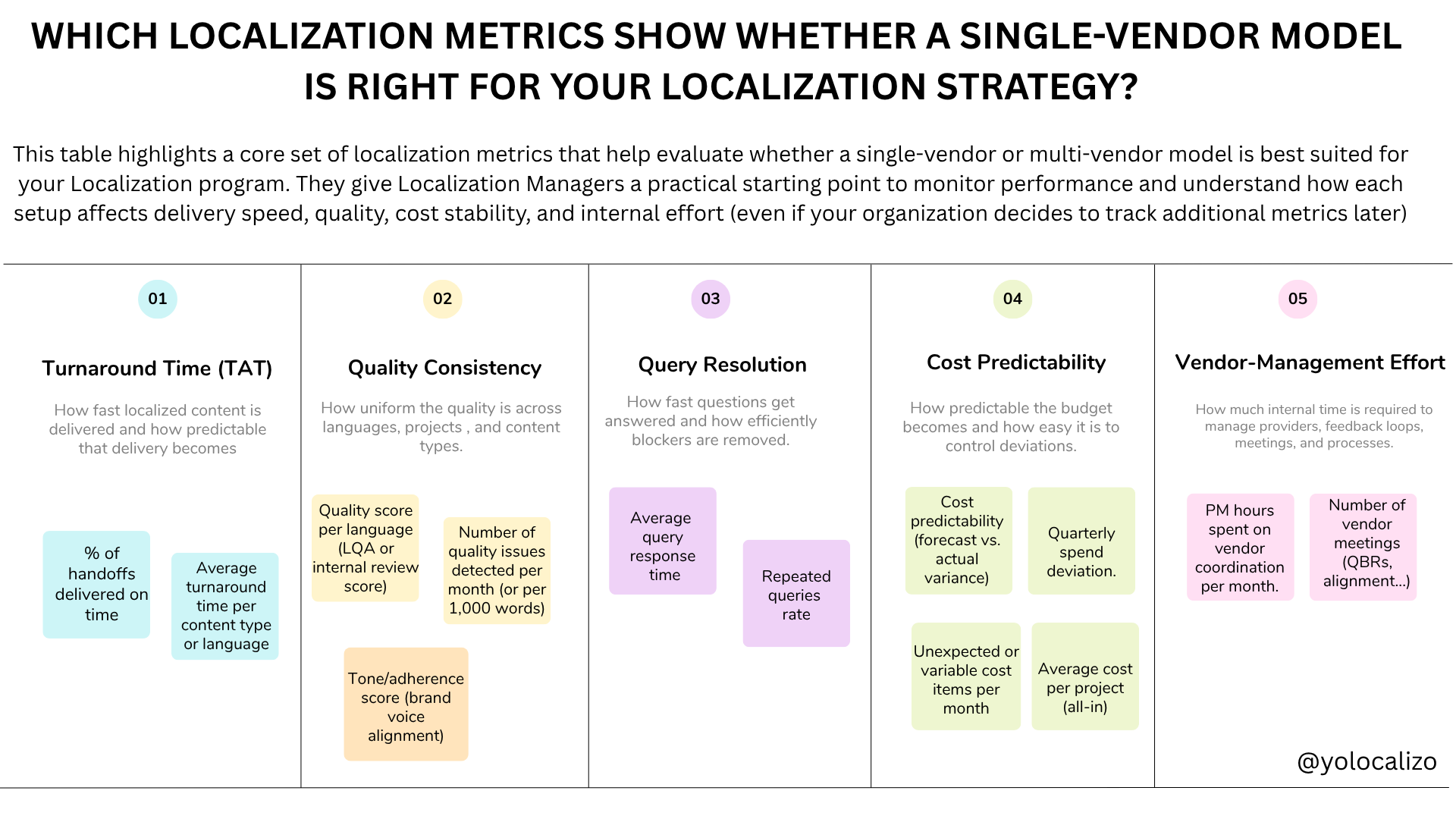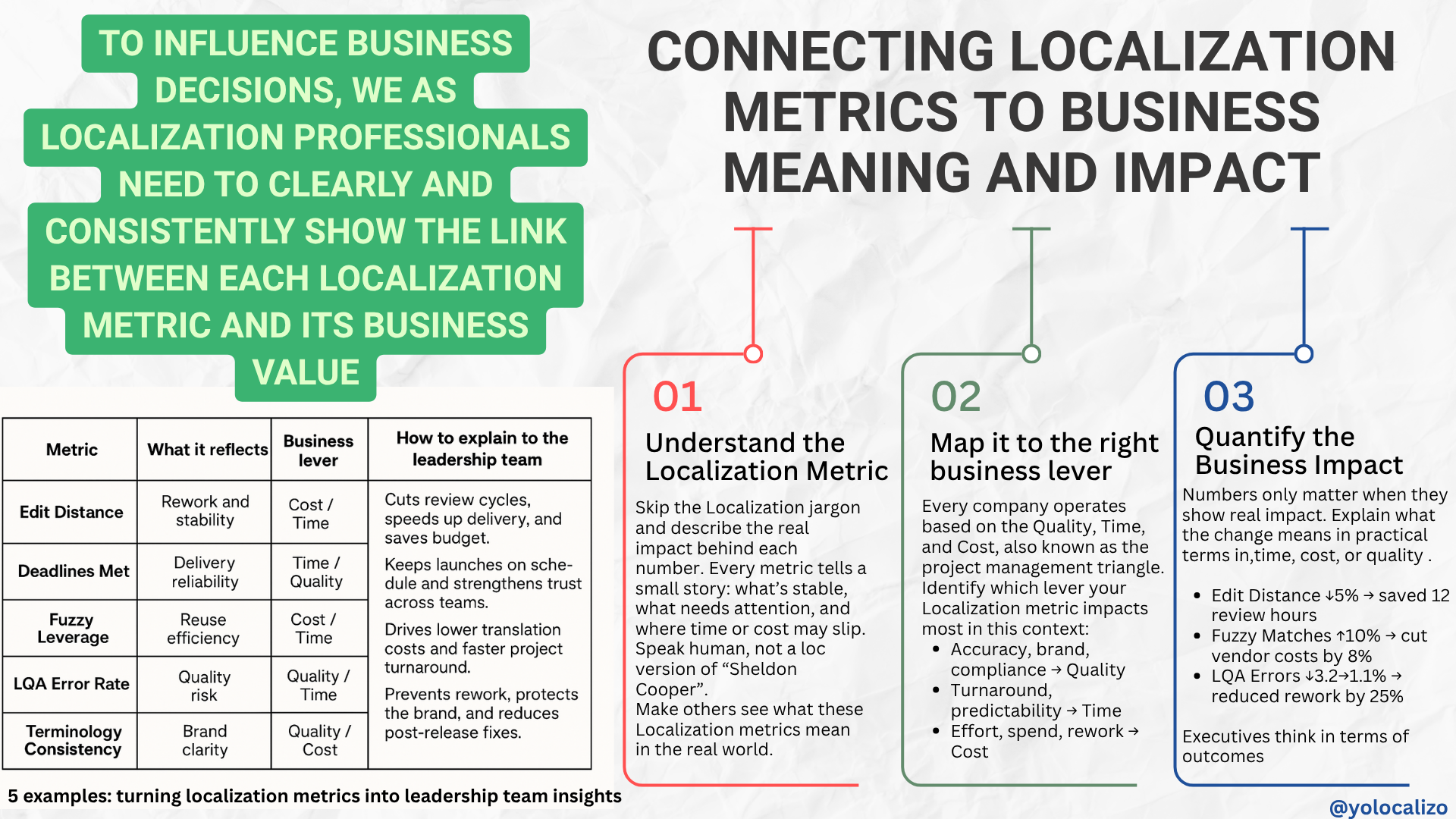To translate internally or to outsource ... that is the question.
A few days ago, I had a video conference call with our financial team to discuss our Localization budget for the next quarters.
During the call and while explaining our processes to determine the forecast, one member of the finance team asked me.
“Hey Miguel, what’s better in terms of Localization, internal resources in-staff or external resources outsourcing translations efforts to a third-party?”
When I received this question, I realised that actually it’s something that I’ve been asked a few times during my career, and when I received that question I knew that the topic for my weekly post was decided :)
I’ve been working at both sides of the Localization industry (or maybe better said 3 sides).
I have worked as freelance, as vendor providing localization services to clients and as client buying localization services from vendors.
I’ll share in the next paragraphs my view on this topic based on what I have seen over the years.
Spoiler alert :) My personal preference is to outsource localization activities to translations partners; but of course, this needs to be analysed carefully before deciding the localization model. It’s not the same to work in a continuously delivery localization environment with translations request every other day, than a model that it might require a bigger handoff in terms of word-count but less often.
There’s not a clear formula that you can apply to decide when you should hire an internal translator or outsource it. But, although there’s not a formula there is some components of the formula that we can analyse to ensure we take the best possible solution in each of the situations.
Before deciding between in-house teams or outsourcing try to answer these questions.
· Volume on monthly basis
Do I have to translate on monthly basis a few hundred words or several hundred thousand per month? It’s not the same to localize a casual game of 4000 words than the reference help of SAP software which is huge in terms of wordcount
· How often?
Do I receive localization requests every day, every week, every 2 weeks …? Depending on the frequency it might be helpful to have internal localizers (or not)
· Confidentiality
Do I have to translate material very confidential? If there’s a leak while my content is translated am I putting my company in danger?
· Complexity
Do I need to provide very technical or specialized translations? Maybe we don’t need only good translators but specialist in their niche of market. In that case, maybe what I need is internal localizers (SME) who might coordinate/review third parties content.
· Is localization quality key for the image of my brand/company?
If top notch localization is an integral part of your company strategy it might be worth it to get internal localizers, however, if poor translation is not an obstacle for your company, and it doesn’t compromise your sales, the preferred solution might be different. For example, I bought a few days ago in Amazon a Bluetooth headset. It has the user guide translated, but the translation was terrible! It was clear that the company used machine translation but they did not include the editing/review phase. I’m pretty sure that this poor translation of the quick guide is not a problem for this particular company because the quality of the headphones is pretty good, from a tech point of view they work very well, I don’t lose my connection between my portable devices and the headset, and the sound is pretty amazing. When I use this product my user experience is good, even if the translation is a joke.
· Do I have the budget to buy the localization tools I need?
Setting up an internal team of translators will mean to acquire also certain technology, although there are free TMS, it’s quite likely that you will end up buying some licenses for MemoQ, Trados etc etc. When you outsource your localization efforts you are also outsourcing the cost of the tools
· Do you really have the capacity to handle peaks and valleys?
I remember when I was working as Studio Manager for Enzyme that every morning we were reviewing how many linguistic testers were required for the day (and week). That was the second task that we were doing every morning (first one was taking a good cup of coffee). I remember reviewing with my team those complex Excel files where we were seeing the number of testers required per day and per language. We were also reviewing if we had any linguistic testers on holidays or reviewing if there has been any unexpected situation (i.e sickness). I will never forget those Excel files. There were days that we (as vendor) might need 66 linguistic testers and the following day we might need 32. That model is absolutely impossible to maintain if you are a client and you want to maintain an in-house localization team. Valleys would be too painful to survive, they will be expensive and it will bring the morale of some individuals down.
· Do you really have the capacity to support “hidden” employees’ localization costs?
Having an internal localization team means that you will need to accommodate some time/money for tasks such as recruiting, training, paying salaries, pay taxes, insurances, pay their computers, desks etc etc. Can I really afford this?
· Do I have the capacity to live with the unexpected?
Let’s say that you decide that you have volume enough, and after carefully analysing pro/cons of in-house vs outsource you go with the internal localizers. Let’s imagine that you have your product translated into 9 languages, and let’s say that you hire these 9 translators. What do you if one day you have an important delivery and your Spanish translator call you to inform you that s/he is sick and cannot go to the office? How do we handle that emergency? Another scenario, what do you do if your translator wants a couple of weeks of holidays after the Easter break, or during the summer? How do you afford 4 weeks of holidays over the year of these resources? Do you need to hire a second translator? Can you afford it? Is it efficient?
· Do you have the localization know-how to setup an internal localization team?
Setting a localization team from scratch is complex, you would need resources familiar with tools and with complex topics such a font integration, tags management, termbases, TM alignments etc etc. The initial cost of that setup might be higher than we anticipated, and finding the right resources for these tasks can be more complex than we imagined.
After reading these previous 1000 words of this post you might have realized that outsourcing maybe necessary for most localization initiatives when they reach certain volume. Again, a proper analysis answering previous questions is required but be aware that setting an in-house team is more expensive than we might think.
Anyways, whatever you decide what your localization strategy is going to be ....good luck with your decision and all the best in your localization journey!
Have an awesome day!
@yolocalizo














This feels like a pivotal moment. Localization teams are being asked to support more markets, move faster, use AI responsibly, and show impact, not just output. Expectations are higher than ever, but many teams are still trained mainly for execution. We are strong at delivering localization work, yet we often struggle to move from output to outcome and to clearly explain the impact of what we do.